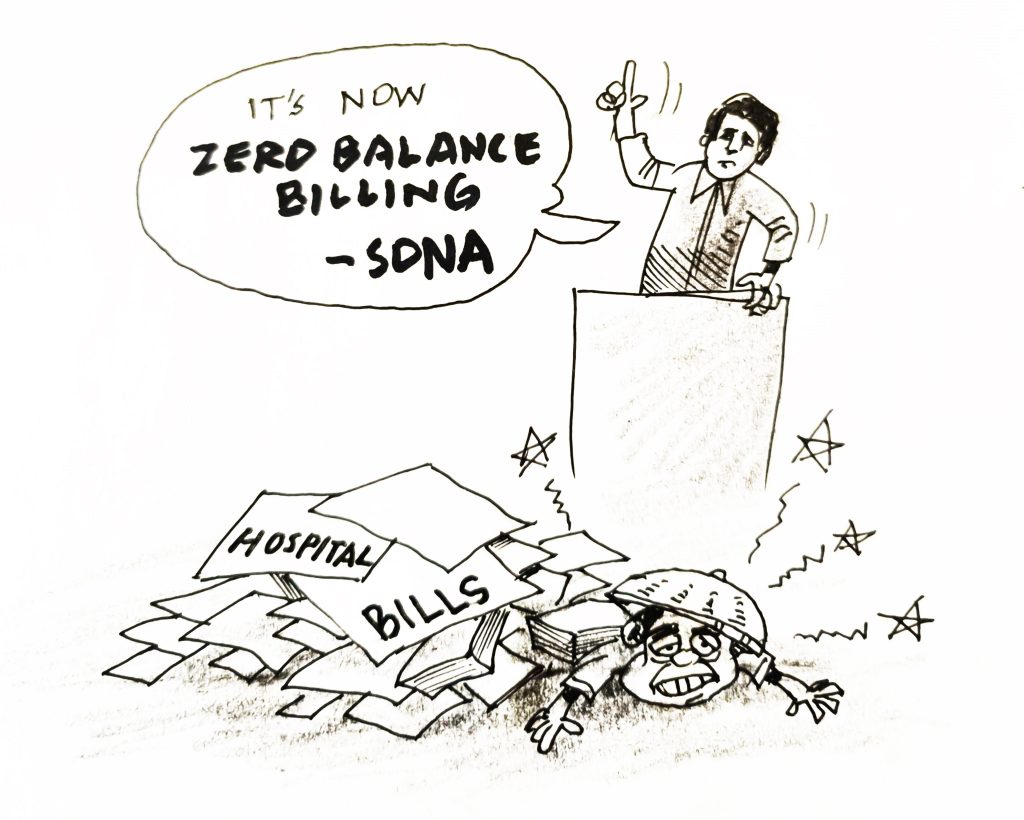President Ferdinand Marcos Jr.’s claim in his SONA 2025 that government hospitals are now implementing zero balance billing is discredited by the lived experiences of patients and the warnings of health workers. It is a policy betrayed by practice and one that demands a reckoning with the real conditions on the ground.
Zero balance billing, by its principle, means no additional payment should be charged to patients upon discharge from government hospitals. However, this promise falls apart in the face of widespread testimonies of out-of-pocket expenses, hidden fees, and mounting debts from families availing even the most basic health services. According to the Alliance of Health Workers, the policy remains largely unimplemented, with public hospitals grossly underfunded and incapable of shouldering the full financial burden of patient care. The gap between policy declaration and actual implementation is a painful reminder that governance must be more than just pronouncements—it must be supported by a functioning system and sufficient budget.
The contradiction lies not only in the lack of funds but in the chronic neglect of the public health infrastructure. Many government hospitals continue to suffer from a shortage of medical supplies, dilapidated facilities, and overworked staff. Nurses and health workers speak not of zero balance billing but of zero resources and zero support. If hospitals themselves are relying on donations or fundraisers just to buy gloves and oxygen tanks, how can they possibly offer hospitalization without charge? The failure of the state to provide adequate subsidies renders the zero-balance billing nothing more than a hollow slogan.
Moreover, the issue reveals a deeper problem of governance: the administration’s reliance on grand pronouncements without due consultation with frontline workers or verification of outcomes. Health workers have been persistently calling for increased funding, better staffing, and actual implementation of health laws. Yet their voices are often ignored, especially when they contradict the official narrative. When the Alliance of Health Workers raised objections, the government should have responded with urgency and humility, not silence. Policies imposed from the top, without meaningful grounding on the realities below, are doomed to fail.
What is needed now is not another declaration from the podium, but a full audit of the country’s hospital billing practices, followed by increased allocation for public health spending. Transparency must be institutionalized, and the voices of patients and health workers must be included in policy review. A law or program, no matter how noble in intent, must not be judged by what it says on paper but by how it protects the poor and the sick in real hospitals, in real time.




